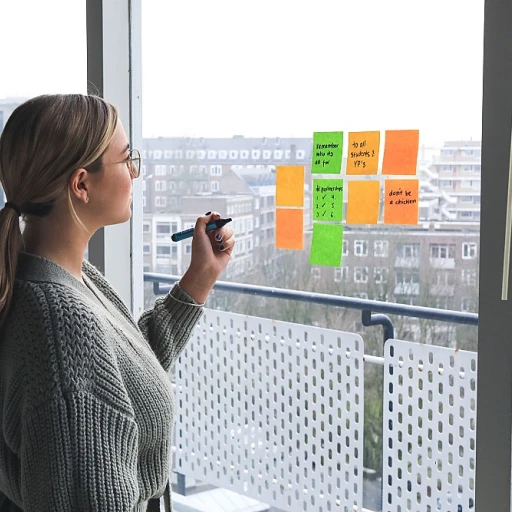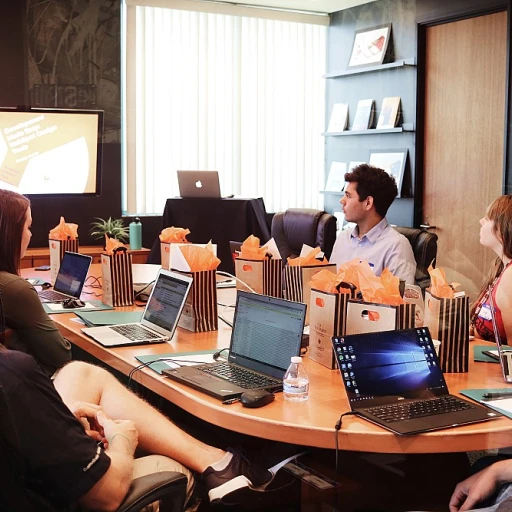Understanding the Unique Challenges in Collections
Identifying Key Obstacles in Debt Collection Roles
In the realm of debt collection, organizations face unique challenges that can significantly impact employee retention and engagement rates. Understanding these hurdles is crucial to crafting effective retention strategies tailored specifically for the collections department. First and foremost, collection roles are often high-pressure, involving interactions with clients who may be experiencing financial difficulties. This can lead to heightened stress levels among employees, affecting their long-term job satisfaction and overall work life balance. Turnover rates in these roles can be notably higher than in other departments, underscoring the necessity for an environment where employees feel valued and supported. Additionally, the nature of debt collection work demands specific skills and competencies, requiring ongoing training and development opportunities. Without such support, employees may feel ill-prepared to perform their duties effectively, leading to dissatisfaction and higher turnover. Moreover, the company culture within collections needs to foster transparency and open communication to mitigate misunderstandings and ensure employees' contributions are recognized and rewarded appropriately. A supportive company culture not only bolsters employee engagement but also enhances job satisfaction, making employees more likely to stay. Finally, the evolving landscape of remote work presents both challenges and opportunities. While remote work can offer more flexibility, aiding in employee retention and satisfaction, it can also complicate the implementation of a cohesive work environment and clear feedback mechanisms. For more insights into how employee benefits can influence turnover, performance, and satisfaction, consider exploring strategies that enhance the attractiveness of collections roles, ensuring they are aligned with overarching organizational goals.Enhancing the Candidate Experience
Improving the Onboarding Process for Candidates
One of the critical aspects of strengthening employee retention in collection departments is ensuring that candidates feel valued from the very start. The employee journey begins with their first interaction with your organization, and the onboarding experience should reflect the organization's commitment to its employees.
A successful onboarding process positively impacts candidates' perceptions and aligns them with the company's culture and values. This not only aids in reducing turnover rates but also enhances job satisfaction and employee engagement over time. Key strategies include:
- Personalized Onboarding: Customize the onboarding experience to meet the unique needs of each new hire. This can involve a mix of online resources, in-person training, and involvement in team activities to help them quickly integrate into the work environment.
- Clear Communication: Ensure that candidates receive clear communication about job roles, responsibilities, and expectations. Providing comprehensive guides or virtual meetings early on can mitigate misunderstandings and foster confidence in their new roles.
- Facilitating Connections: Foster a positive work environment by encouraging new employees to build connections with their coworkers. Organize informal meet-and-greet sessions or assign a mentor to ease the transition during their first few weeks.
- Feedback Mechanisms: Gather and act on feedback from new hires about the onboarding process. Continuous improvements based on timely and constructive feedback will cater to future candidates' needs and boost overall employee retention in the long term.
Investing time and attention in creating a seamless onboarding experience will pay dividends in enhancing retention strategies and ensuring employees stay engaged, motivated, and committed to the job at hand. As collection departments often face unique challenges, this tailored approach assures employees they are respected and valued from day one.
Training and Development Opportunities
Fostering Skills and Employee Growth
In the dynamic world of collections, prioritizing training and development opportunities is crucial for employee retention and engagement. By equipping employees with the necessary skills and knowledge, organizations can improve job satisfaction and cultivate a proficient workforce. Well-prepared employees are more likely to stay with the company long term, reducing turnover rates and enhancing the overall work environment.
Here are some effective strategies for nurturing employee growth:
- Customized Training Programs: Tailor training sessions to address the specific needs and roles within your company. Whether it's debt collection tactics or customer service skills, targeted training ensures employees feel valued and competent in their job roles.
- Flexible Learning Opportunities: Offering both in-person and remote workshops accommodates different learning styles and life balance needs. Flexible work options can boost employee engagement and retention, encouraging top talent to stay.
- Mentoring and Coaching: Implement a mentoring system where experienced employees guide newcomers. This strategy not only fosters a positive work culture but also enhances interpersonal relationships within the team, promoting a supportive work environment.
- Career Advancement Paths: Clearly defined pathways for job growth and advancement within the organization ensure employees know the benefits of staying with your company. Highlighting the advantages of internal promotions can motivate employees to develop and commit to the organization's goals.
Investing in these development opportunities signals to employees that the company values their growth, contributing positively to employee retention and job satisfaction. For more insights, explore how organizations are enhancing engagement through innovative interactions.
Creating a Supportive Work Environment
Cultivating a Positive Organizational Culture
A supportive work environment is a cornerstone for employee retention, especially within the high-pressure atmosphere of collections departments. Ensuring that employees feel valued and part of a cohesive culture can significantly impact turnover rates and job satisfaction. Creating such an environment requires thoughtful strategies that foster not just professional growth but also personal well-being. Employees need to feel that their workplace supports their work-life balance and personal development. Here's how organizations can achieve this:- Open Communication: Encouraging transparent communication between management and staff is crucial. Regular check-ins and team meetings can ensure that everyone is on the same page and feels heard.
- Promoting Work-Life Balance: Flexible work arrangements, including remote work options, help employees manage their personal and professional responsibilities. This flexibility often leads to enhanced job satisfaction and retention.
- Inclusive Company Culture: Cultivating a respectful and inclusive workplace where diverse voices are celebrated enhances the overall work environment. It ensures employees feel valued, boosting engagement and reducing turnover.
Implementing Effective Feedback Mechanisms
Building a Culture of Constructive Feedback
In the realm of collections, where stress levels can be high and the work environment demanding, implementing effective feedback mechanisms is crucial for employee retention. Feedback is not just about pointing out areas for improvement; it's a powerful tool for fostering employee engagement and job satisfaction.
To ensure that feedback contributes positively to your company culture, consider these strategies:
- Regular Check-Ins: Schedule frequent one-on-one meetings to discuss performance and development opportunities. This helps employees feel valued and supported, enhancing their commitment to the organization.
- Two-Way Communication: Encourage employees to share their thoughts and concerns. A culture that supports open dialogue can significantly improve employee engagement and retention.
- Actionable Insights: Provide feedback that is specific and actionable. Employees should walk away with a clear understanding of what is expected and how they can achieve it.
- Recognition and Encouragement: Balance constructive criticism with positive reinforcement. Recognizing achievements boosts morale and motivates employees to maintain high performance levels.
By integrating these feedback strategies, companies can create a supportive work environment that reduces turnover rates and helps employees feel more connected to their roles. This, in turn, contributes to a positive work culture where employees are more likely to stay long-term.
Recognizing and Rewarding Employee Contributions
Appreciating Team Members through Acknowledgment and Rewards
Retaining employees in collections departments requires more than just a competitive salary. It’s crucial to recognize and reward their hard work, which greatly influences job satisfaction and engagement. Employee retention thrives in an organization that consistently acknowledges and celebrates its team members' accomplishments and contributions. Here's how you can effectively integrate these practices into your retention strategies:
- Public Recognition: Celebrate achievements publicly during meetings or through internal communication channels. This not only makes each employee feel valued and motivated but also fosters a culture where success is acknowledged and appreciated.
- Personalized Rewards: Offering personalized rewards that resonate with individual team members demonstrates understanding and care towards their unique preferences and lifestyle. This could range from additional time off for a better work-life balance to gift cards or experiences.
- Foster a Positive Culture: A supportive work environment is crucial. Establishing a culture where employees are frequently recognized for their efforts cultivates long-term commitment and loyalty. Employees who feel appreciated are less likely to leave, reducing turnover rates significantly.
- Career Advancement Opportunities: Recognition should also be tied to advancement opportunities. Promoting merits and capabilities enable employees to see a future within your company. Training and development opportunities should be linked closely with career progression to give employees a sense of growth and belonging.
- Utilize Feedback: Implement effective feedback mechanisms (a point discussed previously) to understand what forms of recognition are most valued by your team. Frequent evaluations allow you to tailor your recognition and rewards, ensuring they remain relevant and impactful.
Implementing these recognition strategies will not only bolster employee engagement and retention but will also contribute to a more cohesive and dedicated workforce in your collection department. Combining these efforts with flexible work opportunities, as previously outlined, will create a robust environment where top talent feels motivated to stay and contribute positively.






